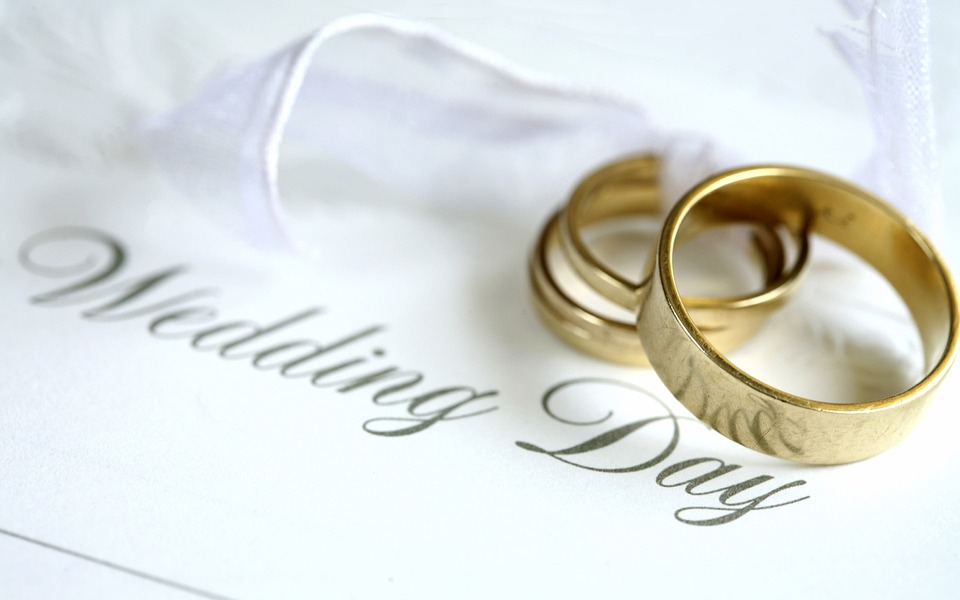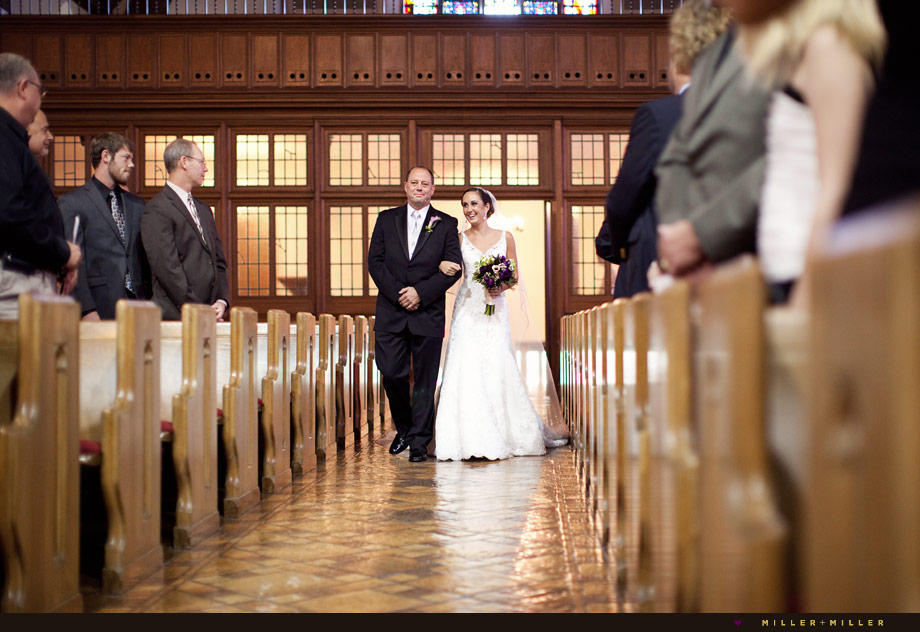Customs associated with various religions and cultures[edit]
Christian customs
Main article: Christian views on marriage
Further information: Marriage § Christianity

A couple exchange vows on the church altar during a ceremony in a Catholic Church.
Most Christian churches give some form of blessing to a marriage; the wedding ceremony typically includes some sort of pledge by the community to support the couple's relationship. A church wedding is a ceremony presided over by a Christian priest or pastor. Ceremonies are based on reference to God, and are frequently embodied into other church ceremonies such as Mass.[12] Customs may vary widely between denominations. In the Roman Catholic Church "Holy Matrimony" is considered to be one of the seven sacraments, in this case one that the spouses bestow upon each other in front of a priest and members of the community as witnesses. As with all sacraments, it is seen as having been instituted by Jesus himself (see Gospel of Matthew 19:1–2, Catechism of the Catholic Church §1614–1615). In the Eastern Orthodox Church, it is one of the Mysteries, and is seen as an ordination and a martyrdom. The wedding ceremony of Saint Thomas Christians, an ethnoreligious group of Christians in India incorporate elements from Hindu, Jewish and Christian weddings.
"The Order for the Service of Marriage" in the Methodist Book of Worship for Church and Home (1965) specifies the importance of premarital counseling, stating that the "minister is enjoined diligently to instruct those requesting his offices for their prospective marriage in the Christian significance of the holy estate into which they seek to enter".[13] In the Free Methodist Church and African Methodist Episcopal Church, both apart of the World Methodist Council, contain a rubric for the reading of the banns.[14] The Service of Christian Marriage (Rite I) includes the elements found in a standard liturgy celebrated on the Lord's Day as well as other elements unique to this Mass: the Entrance, Opening Prayer, Old Testament Reading, Psalm, New Testament Reading, Alleluia, Gospel Reading, Sermon, Recitation of one of the ecumenical creeds, prayers of the faithful, Offertory, the Declaration by the Man and the Woman, Response of the Families and the People, Exchange of Vows, Blessing and Exchange of Rings, Declaration of Marriage and celebration of the Eucharist, and Benediction.
